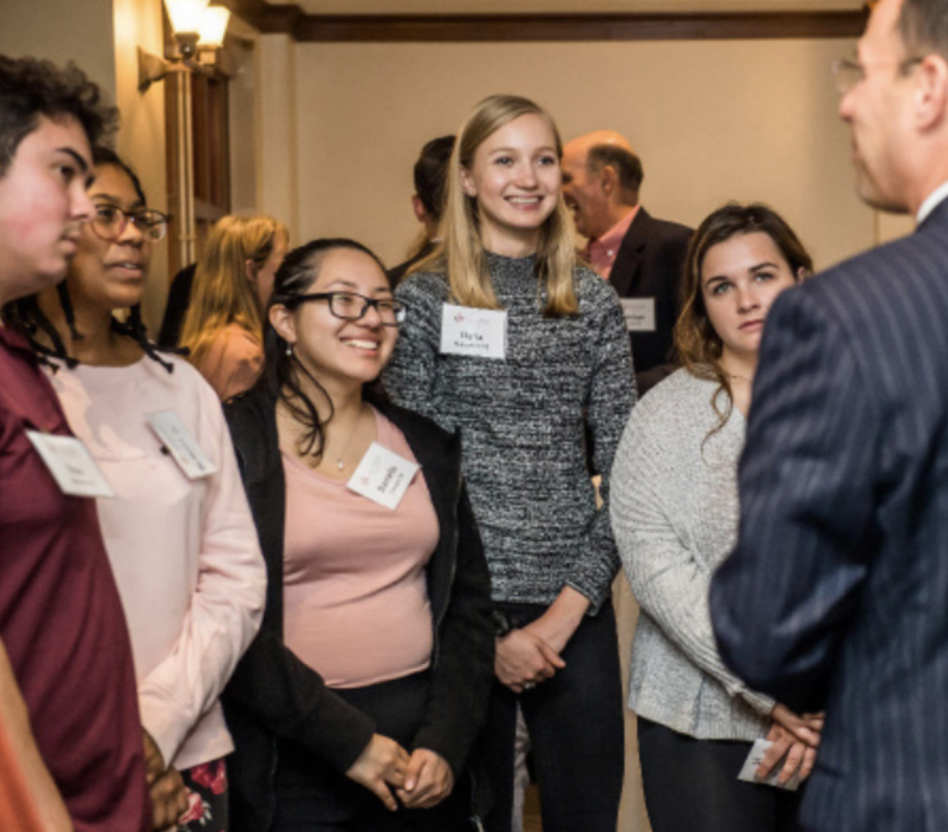Damaris Gimenez ’23 was in middle school when she first began to consider a career in law.
“I thought that if I wanted to make a difference it would be in terms of law and fighting for people who look like me, like a Black woman,” Giminez said. “I really wanted to advocate for Black women in a special way, so I thought being a lawyer was perfect.”
When Gimenez arrived at St. Joe’s, she joined the Law Exploration Advancing Diversity (LEAD) Program, an organization that supports students of color who are interested in pursuing a career in law and aims to combat inequalities in law school acceptance rates.
During the 2016-2017 admission cycle, 49% of Black applicants and 33% of Latinx applicants were shut-out, or not admitted into any law school, according to a study from AccessLex institute that was published in 2018. High shut-out rates later impact the number of attorneys of color practicing law. According to the American Bar Association, only 14.6% of lawyers in the U.S. are people of color.
“Being a lawyer of color, being a Black person that wants to become a lawyer, is a different path, so I appreciate that they give you different perspectives and resources to help you catch up and to help you know what you’re supposed to be doing in terms of applying to law school,” Gimenez said about the LEAD program.
LEAD was founded in fall 2019 by Susan Liebell Ph.D., professor of political science and Dirk Warren ’50 Sesquicentennial Chair, and Christine Falcone, former assistant director of the Career Development Center, who recently left the university. A collaboration between the pre-law program and the Center for Inclusion and Diversity (CID), LEAD is made up of about 25 students of color, according to Paul Patterson, Ph.D., associate professor of English and current head of the LEAD Program.
Patterson said the program helps students of color find resources they might need so they can ultimately pursue their career in law.
“It was initially designed as a program that would give students of color a space to build community,” Patterson said. “[To] actually give students of color who are interested in studying law and going to law school a space for building community, connections and support.”
The program hosts three or four events per semester for students, from lectures focused on better understanding the American legal system to dinners with alumni of color who have careers in law.
Gimenez said there are many different topics LEAD covers within the programs they hold that interest her, and participating in the programs is helping her find which areas of law may interest her in the future.
“I go to the LEAD events to actually know more about different types of law,” Gimenez said. “They do a lot of events on different types: immigration, business, international. They have a lot of different avenues that you can learn more about so I’m in the process of hearing about a lot of different kinds of places I could go.”
A first-generation college student, LEAD member Daniella Campos ’23 said she grew up hearing that she needed to be a doctor or a lawyer. She said her family was half-joking, but the idea stayed in the back of her mind until she got to college and took Liebell’s first year-seminar. She eventually found her way to LEAD.
Campos is not yet sure what type of law she would like to pursue, maybe immigration law, civil rights or human rights.
“With all of the policies that are put into place that are very archaic and need reform, immigration law is something that I’m really passionate about, especially being a first-gen, not only a first-gen college student but a first-gen American,” Campos said. “I know a lot about immigration policies and how that affects families.”
Whatever she specializes in, Campos said the draw is the ability to help others be heard.
“Being a voice to the voiceless is something that really appealed to me, helping people out, and pursuing justice overall, no matter the race, ethnicity, class, gender,” Campos said. “Just being able to represent minorities is really important to me and making sure that they are being heard and are granted the same rights as everyone else.”
Campos said having this organization on campus is important because students of color often don’t have the resources they need to get involved in law or to get into law school.
“Knowing the right people and having a program like this really levels the playing field,” Campos said. “[It] allows students to ask the questions they have and to get to know more people who are interested in law and pursuing the same career as them, and it also allows you to have a support system in general.”














































